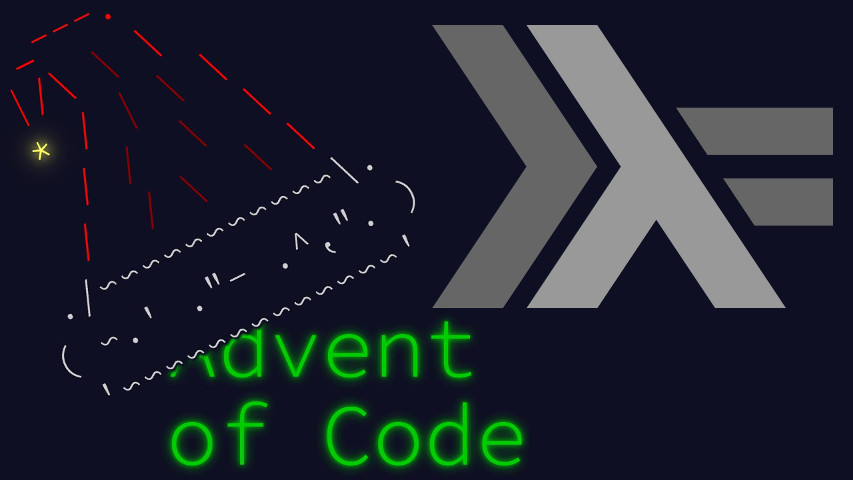Advent of Code day 7 is “Bridge Repair”—a nice little puzzle!
Absolutely nothing hard, just a matter of recognizing we have a very bounded input, neither an O(2N) nor an O(3N) algorithm would be an issue.
Let’s start with our typical literate Haskell imports.
import Control.Arrow ((&&&))
import Control.Monad (foldM,guard)
import Data.Maybe (mapMaybe)Parsing. I’m resisting a strong urge to use ViewPatterns
here. You’ll thank me later.
So anyway, I parse using the standard library, lines,
words and read for the grunt work,
init for fancy different number.
parse :: String -> [(Int,[Int])]
parse = map f . lines where
f l = let (x:xs) = words l
in (read (init x),map read xs)The core search will happen in the list monad, expressing a computation that has different possible return values. We’ll use it to return the results of the various pairwise operations we can perform: sum and product. We have a nice familiar left-to-right order of operations. In other words, a left fold.
So the search is a fold in the list monad over the list of numbers.
We check its result for the presence of the target value, returning said
target wrapped in a Maybe.
search :: (Int -> Int -> [Int]) -> (Int,[Int]) -> Maybe Int
search op (result,x:xs) = result <$ guard (result `elem` foldM op x xs)This enables easy checksumming according to the day’s formula:
solve :: (Int -> Int -> [Int]) -> [(Int,[Int])] -> Int
solve op = sum . mapMaybe (search op)The operations are the only difference between parts 1 and 2. We already evoked part 1’s sum and product; for part 2 we add decimal concatenation, which expresses easily if not fantastically performant. Not that it matters so much for that input size.
part1,part2 :: Int -> Int -> [Int]
part1 a b = [a+b,a*b]
part2 a b = [a+b,a*b,read (show a ++ show b)]A wrapper, and it’s done.
main :: IO ()
main = interact $ show . (solve part1 &&& solve part2) . parseThis concludes today’s solution. See you tomorrow!



